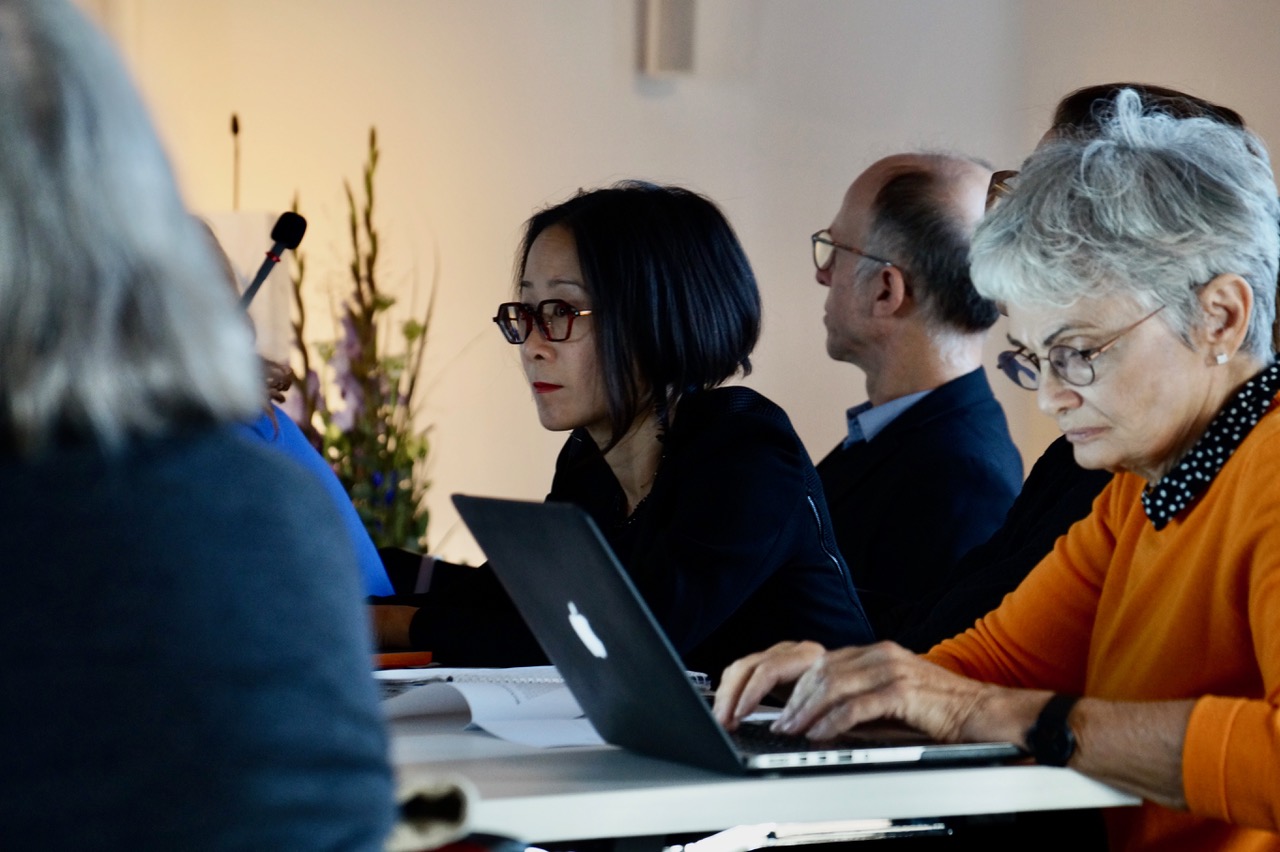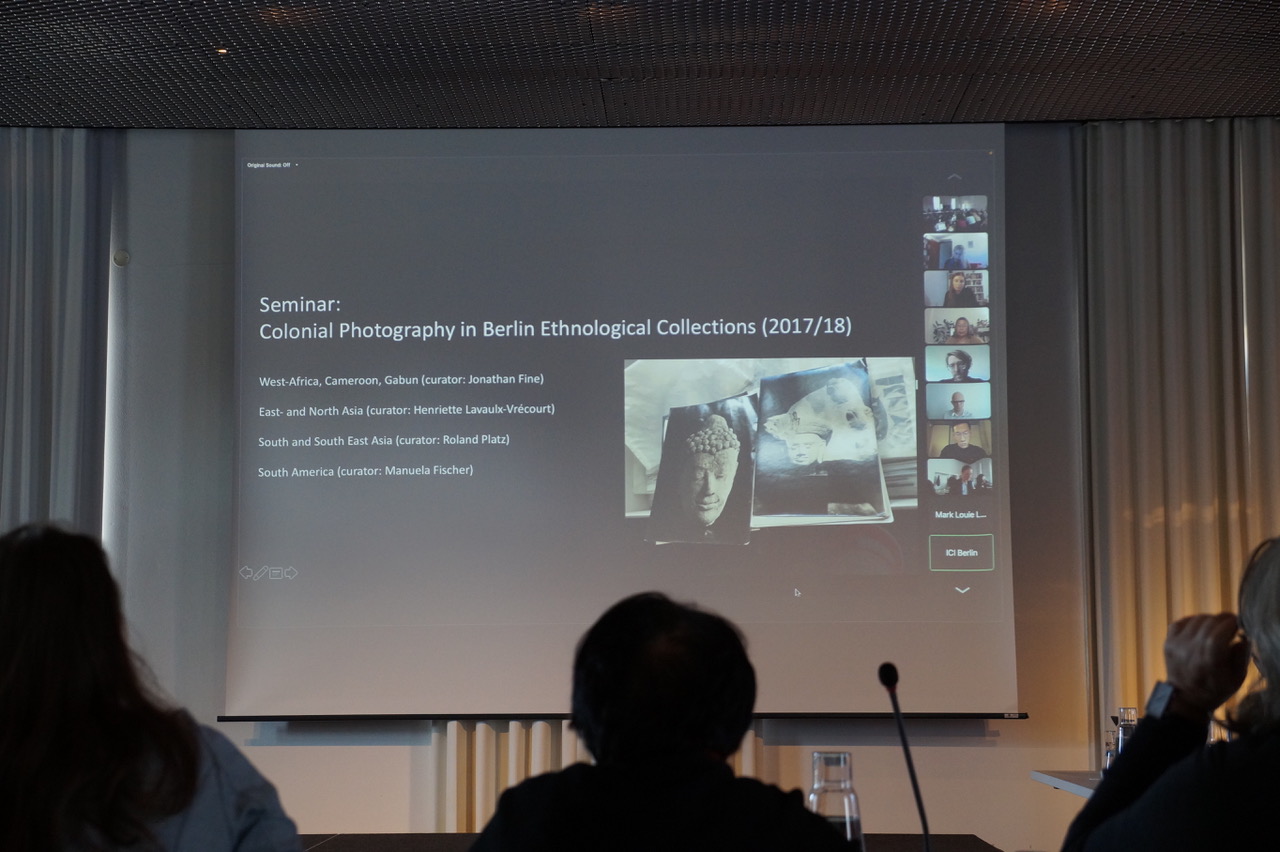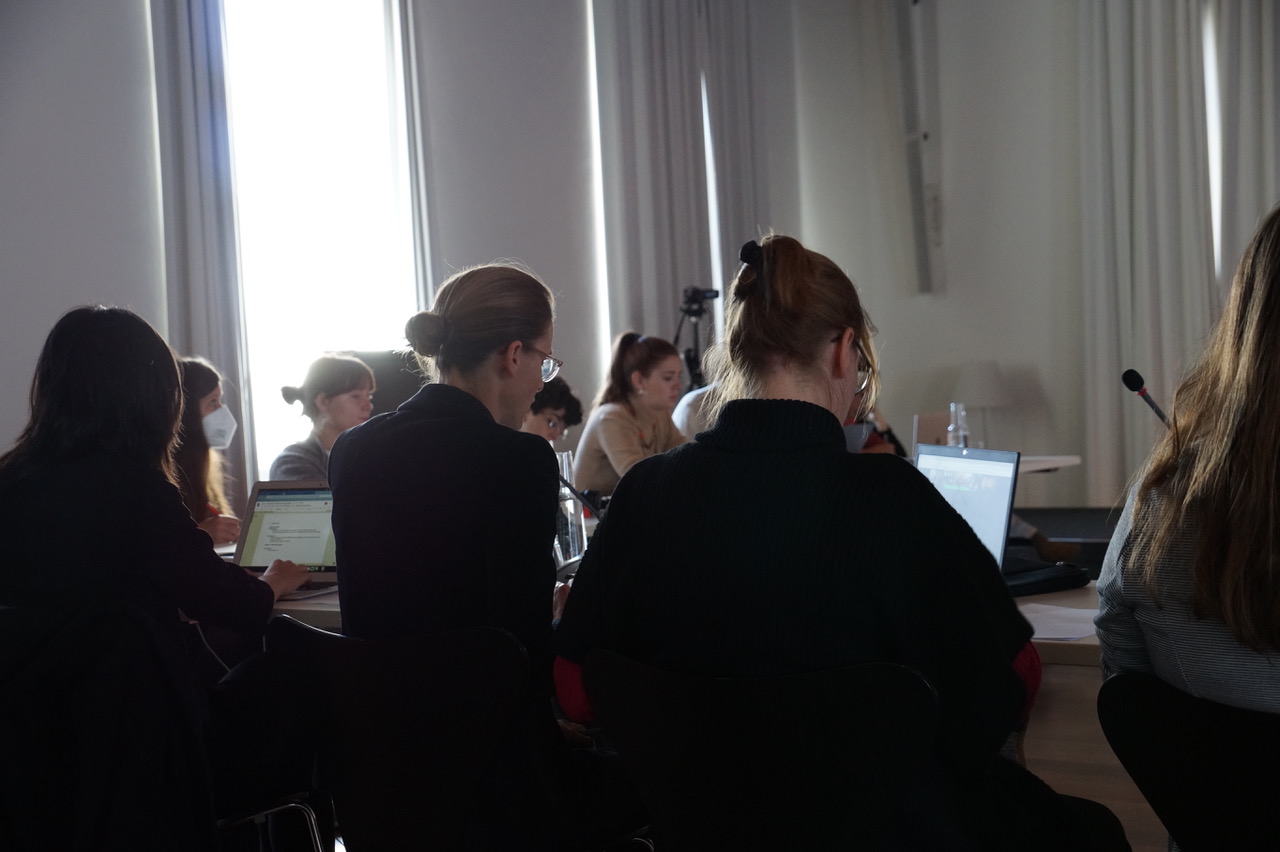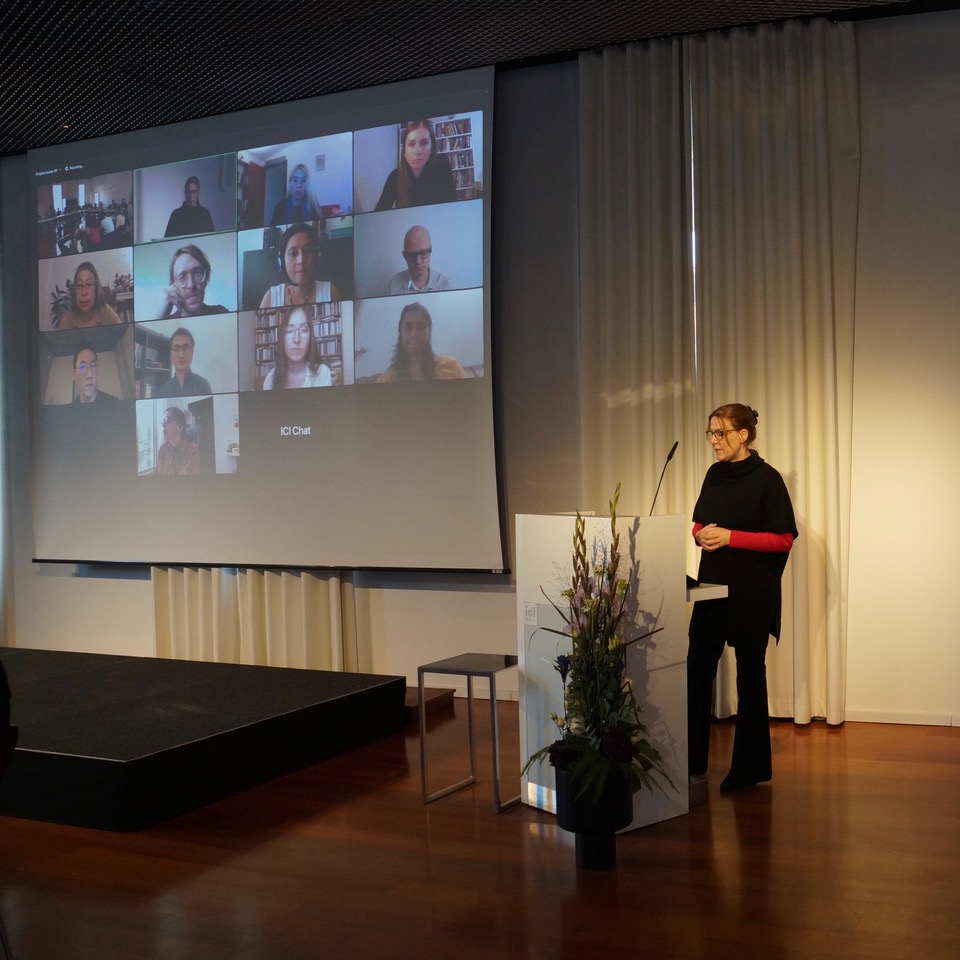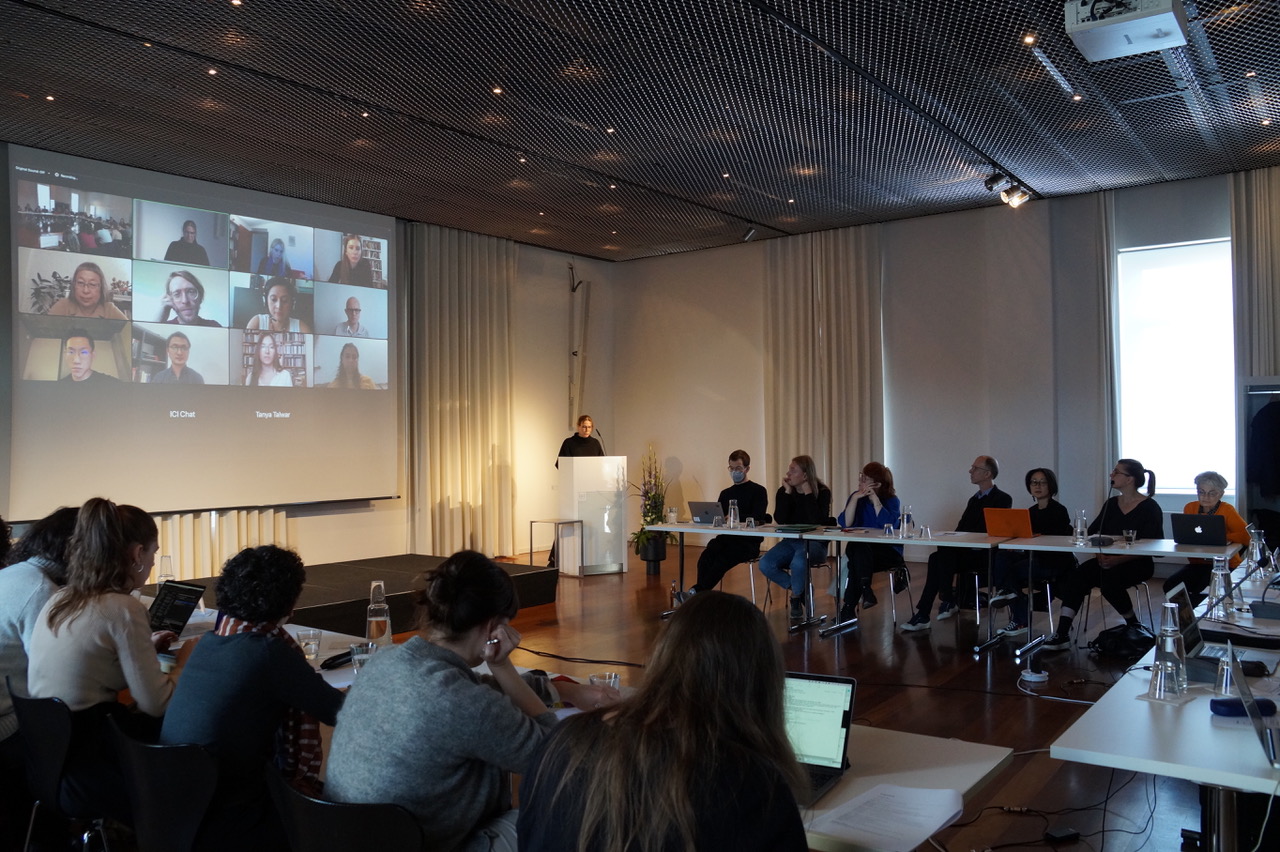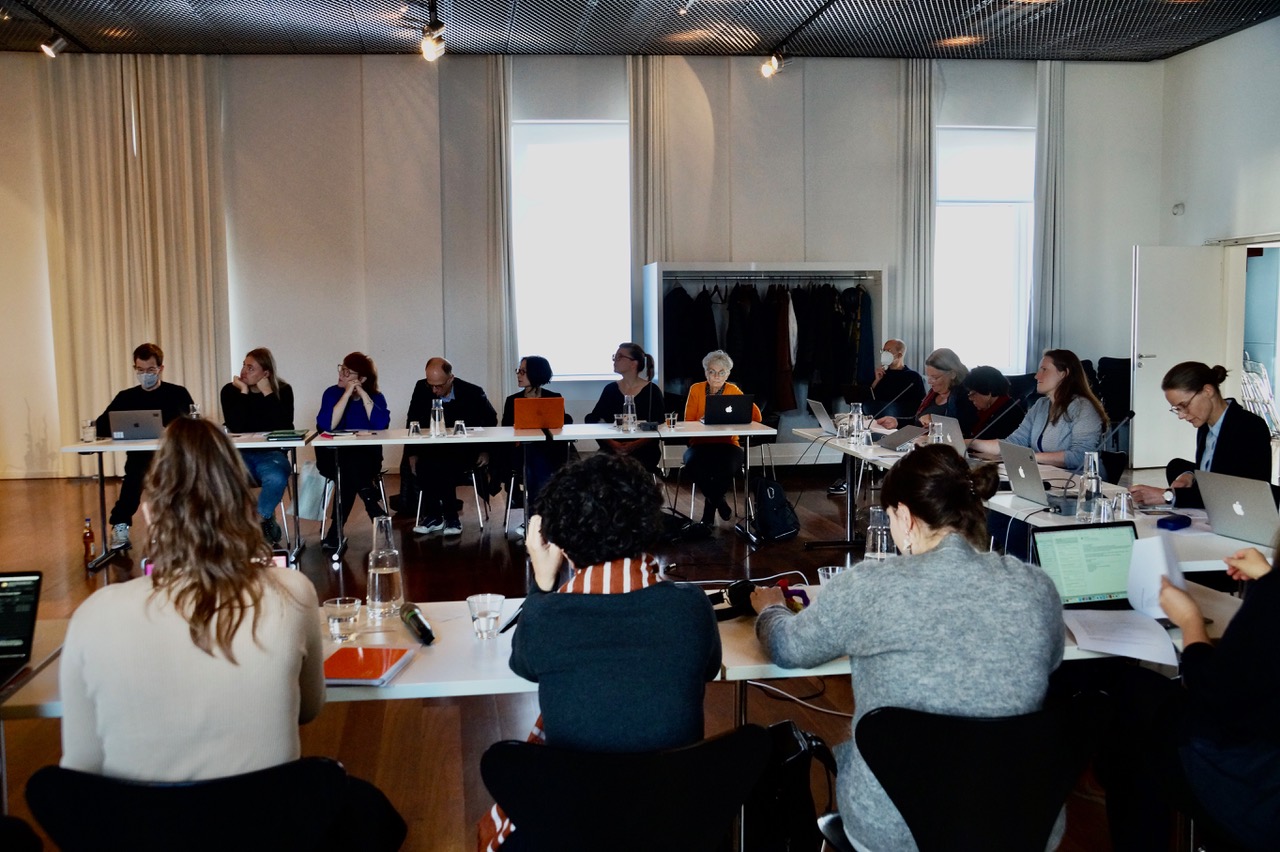Date: 11 October 2022
Time: 10am - 2pm
Venue: ICI Berlin Instiute for Cultural Inquiry & online
The recent ‘global turn’ in art history and curatorial practice has prompted the question of how to reflect this through pedagogy. The workshop Worlding Art History through Syllabi takes up the notion of ‘worlding’ to explore how art history is taught in different places and institutions around the world. What would a ‘worlded’ syllabus look like, and how can we collaboratively ‘world’ global art history?
A ‘worlded’ art history rejects the idea of a single global world framed, ordered and represented according to Eurocentric premises or as universally constituted by global capitalism. Instead, it conceives of the global as constituted from multiple and entangled geo-cultural perspectives. It is not centered on assumed commonalities of ‘global’ art. Rather, it seeks to shed light on differences and relations. What are histories, epistemologies and ontologies that constitute ‘global’ art? What are infrastructural or institutional incommensurabilities which define the many intersecting art histories of the present?
This workshop is organised as part of the international research project and network Worlding Public Cultures: the Arts and Social Innovation (WPC) in cooperation with the ICI Berlin. It invites scholars from the fields of art history, cultural studies, cultural anthropology, media studies, museum studies and other related disciplines to participate in a peer-to-peer exchange of experiences and practices. It focuses on how scholars may, or already have, designed teaching syllabi to complicate dominant frameworks of ‘global’ art history. It is particularly interested in how syllabi have the capacity to restructure pedagogical approaches to teaching topics such as global capitalism in the art world, the so-called Global North-South division, transnational and transcultural entanglements, and differences between teaching regional art histories.
This workshop builds upon recent discussions around pedagogies at the Worlding Public Cultures Academy, Lessons Learned? Transcultural Perspectives in Curating and Pedagogies (14-16 July 2022), hosted by the Staatliche Kunstsammlungen Dresden. It takes the form of an interactive gathering. Participants are invited to share examples of their own syllabi, as well as speak on the challenges faced in designing syllabi to reflect multiple geo-cultural perspectives, decolonial and ‘global’ art histories. Among the questions which this workshop seeks to address are:
- How is the situatedness of art history taught across regional, national and local contexts?
- What methodological approaches are discussed?
- Which discursive, spatial and temporal frameworks are syllabi structured around?
- What role does close-looking of artworks play in courses? How to connect theoretical readings and visual materials?
- How can art historical methods be reconceptualized through comparative approaches?
- How are the notions of the ‘global’, ‘transnational’ and ‘transcultural’ defined for students?
- What are different approaches to structuring syllabi for undergraduate and postgraduate students? What information do ‘foundational courses’ provide?
- What challenges are faced? What do students and lecturers appreciate the most?
- How have institutional and departmental interests shaped the scope of teaching ‘global’ art history?
- How can museums or other art institutions be integrated into teaching?
Programme
Welcome and opening remarks by Franziska Koch and Eva Bentcheva
Session 1: What is a Syllabus?
Presentation by Presentation by Eva Ehninger (Humboldt University Berlin)
Session 2: Rethinking Syllabi in/from Asia
Presentation by Xiaoxia Song (Central Academy of Fine Arts Beijing)
Presentation by Priya Maholay-Jaradi (National University of Singapore)
and Roger Nelson (Nanyang Technological University)
Session 3: Re/laying the Groundwork
Presentation by Claire Farago (University of Colorado, Boulder)
Presentation by Ming Tiampo (Carleton University)
Workshop participants:
Oliver Aas
Antonia Behan
Eva Bentcheva
Laurens Dhaenens
Pauline Doutreluingne
Eva Ehninger
Philipp Ekardt
Claire Farago
Wesley Hogan
Birgit Hopfener
Sol Izquierdo de la Viña
Monica Juneja
Franziska Kaun
Seunghee Kim
Franziska Koch
Anton Lee
Mark Louie Lugue
Priya Maholay-Jaradi
Roger Nelson
Varda Nisar
Miriam Oesterreich
Luísa Santos
Vera Simone-Schulz
Jakob Schillinger
Moritz Schwörer
Xiaoxia Song
Hanna Steinert
Tanya Talwar
Ming Tiampo
Esra Yildiz
Carine Zaayman
Ayelet Zohar
This workshop is conceived by the Heidelberg University team of Worlding Public Cultures in collaboration with Ming Tiampo (WPC / Carleton University) and Birgit Hopfener (WPC / Carleton University), and is generously hosted by ICI Berlin Institute for Cultural Inquiry Berlin. For more information, please see: https://www.ici-berlin.org/past/
Cover image credit: Migrations, Pansee Atta, 2014, Mixed Media on panel, 8"x10"
Image credit (below images): Claudia Peppel / ICI Berlin
